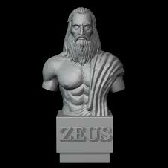



 NEXT
NEXT
 BACK
BACK
 Forum
Forum


Philosophical musings on Quanta & Qualia; Materialism & Spiritualism; Science & Religion; Pragmatism & Idealism, etc.




Post 90. July 4, 2019
Nontraditional God Model
God of a Physicist
In a Quora Forum post, physicist Richard Muller, answered the question : “As a physicist, do you believe in God, or in any kind of higher being?” Normally, we assume that pragmatic scientists tend to be atheists. But theoretical science is more philosophical than empirical. So, it’s not surprising that some physicists, those who deal with hypotheticals and intangibles, would be open to the concept of an invisible deity responsible for the laws & logic of the natural world. In fact, several of the pioneers of Quantum Physics expressed a belief, or assumption, that some kind of higher power must exist in order to provide an explanation for the beauty & order within randomness. Even Einstein is infamous for his references to God. When pressed to explain what he meant by “God”, he replied that “I believe in the god of Spinoza”.
The 17th century philosopher deduced that God is “the sum of the natural and physical laws of the universe and certainly not an individual entity or creator. ... God is the only substance in the universe, and everything is a part of God”. That definition of deity is usually labeled as “Pantheism”. But since it is based on human reason instead of scriptural revelation, the more accurate term would be “Pandeism”. In his post, professor Muller qualifies his belief to distinguish it from faith, “I don’t like to use the word “believe” because it implies that I don’t know for sure, but think it very likely. I prefer to say that I am profoundly aware of the existence of God. His presence is so evident, that the only way that others fail to notice it is because they are looking for the wrong thing and are confused.”
That kind of “presence” is not physical, but logical. Some people are looking for particular sensory evidence of a traditional humanoid deity, such as a physical manifestation or a miracle. But logical inference of a necessary First Cause & Lawgiver is based on abstract properties of the whole system. It’s a philosophical judgment, not a scientific demonstration. That the world exists, and is lawful, is unquestionable. But how & why it got that way is debatable, because it’s outside our purview. So, any conclusion we draw – atheistic, theistic, deistic – must be a qualified belief, not an absolute faith.
Muller goes on to distinguish his physicist’s view of “God” from that of the majority of humanity : “My God is not a “Santa Claus” god—one who “knows when you’ve been bad or good so be good for goodness sake.” He is not a god who grants you favors in exchange for worship. God doesn’t care if you worship him or not. (The use of the word “him” here is traditional, but I don’t think of God as a person.) I worship God because it is spiritually good for me. It strengthens me.” His abstract, impersonal god-
Post 89 continued . . . click Next
Traditional
God
Model

Quora Forum
“As a physicist, do you believe in God, or in any kind of higher being?”
Richard Muller, Prof Physics, UCBerkeley, author of "Now—The Physics of Time" (2016)
https://www.quora.com/

1. PanEnDeism :
G*D is both abstract – as mathematical information – and concrete – as the physical material of the world.
http://blog-
2. Divine Programming :
If G*D is imagined as the Great Programmer in the sky, then we can interpret natural evolution as the ciphering of the cosmic code in the Big Bang Singularity. That code included a question to be answered, some basic data to start with, and rules of logic for the computation. Science has revealed much of the data (physics) and the rules (mathematics), but the ultimate question remains elusive. See Evolutionary Programming :
http://blog-

